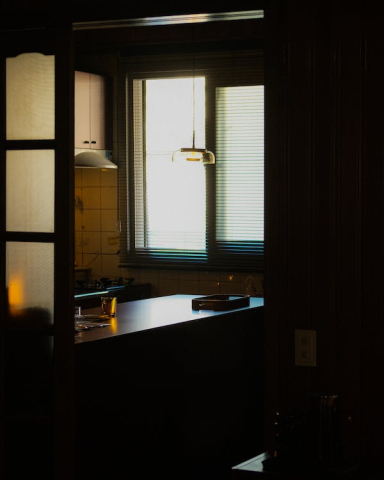The Ultimate Guide to Understanding Your Rental Needs: Finding the Perfect Apartment
If you are planning to move to a new apartment, you might be feeling overwhelmed and unsure about where to start. With so many options available, it can be challenging to determine which apartment would be the best fit for your lifestyle and budget. In this article, we will guide you through the process of understanding your rental needs and finding the perfect apartment.
Table of Contents
- Understanding Your Rental Needs
- Setting a Budget
- Location
- Apartment Size and Layout
- Amenities and Features
- Lease Terms
- Security Deposit and Fees
- Maintenance and Repairs
- Pet Policies
- Parking
- Accessibility
- Environmental Factors
- Checking Reviews
- Visiting Apartments
- Finalizing the Decision
Understanding Your Rental Needs
Understanding your rental needs is a critical first step when embarking upon the search for an apartment. Before perusing the vast array of rental options available, it is imperative to engage in introspection and ascertain precisely what you desire and require in your new abode. Consider your lifestyle, habits, and priorities when contemplating your rental prerequisites. Would a serene environment conducive to work or study be essential? Is a profusion of natural light of paramount importance? Do you share your abode with a beloved pet, necessitating ample space for frolicking? Would a stroll through a pedestrian-friendly neighborhood be preferred? Are you partial to a specific architectural aesthetic? By delineating your rental needs with exactitude, you can streamline your search and conserve valuable time and energy. Allow your rental needs to be the compass guiding you towards your ideal living arrangement.
By identifying your rental needs, you can narrow down your search and save time and energy.
Setting a Budget
Setting a budget is crucial when looking for an apartment. You should know how much you can afford to spend on rent and utilities without jeopardizing your financial stability. A general rule of thumb is to spend no more than 30% of your income on housing.
Location
Selecting an apartment in an optimal location is paramount to realizing a fulfilling and convenient lifestyle. The geographic location of your abode can significantly impact your daily routine and level of contentment. When assessing location, it is imperative to contemplate the proximity to key destinations, such as your workplace or academic institution, as well as public transportation options, including subways, buses, and trains. Nearby grocery stores and essential services are also essential considerations when evaluating location. Moreover, access to parks and recreational facilities can enhance your physical and mental well-being. Cultural attractions, such as museums and theaters, may also be significant factors for some. Careful consideration of these factors when selecting your apartment's location can afford a comfortable and harmonious living experience.
Think about your daily routine and how a particular location can make your life easier or more challenging.
Apartment Size and Layout
The size and layout of an apartment can significantly affect your comfort and convenience. Think about how much space you need and how you want to utilize it. For instance, if you work from home, you might need a dedicated workspace. If you enjoy cooking, you might want a kitchen with ample counter space.
Amenities and Features
Apartments come with various amenities and features that can enhance your living experience. Some common amenities to consider include:
- Fitness centers
- Pools
- On-site laundry facilities
- Outdoor spaces
- Storage units
- Pet care services
Make a list of amenities that are essential and desirable to you, and prioritize them accordingly.
Lease Terms
Lease terms can vary significantly between apartments. Before signing a lease, make sure you understand:
- The length of the lease
- The rent payment schedule and late fees
- The policies regarding subletting and roommates
- The notice required for moving out
Reviewing the lease terms can help you avoid unpleasant surprises and ensure that you are making an informed decision.
Security Deposit and Fees
Most apartments require a security deposit and various fees upfront. The security deposit is refundable at the end of the lease if there is no damage to the apartment. The fees can include application fees, administrative fees, and pet fees. Make sure you understand the total cost of moving in and factor it into your budget.
Maintenance and Repairs
Living in an apartment comes with maintenance and repair responsibilities. Ask the landlord or property manager about:
- The maintenance and repair process
- Who to contact in case of an emergency
- How long it typically takes to resolve issues
Knowing the maintenance and repair policy can help you prepare for unexpected situations.
Pet Policies
If you have a pet or plan to adopt one, it's crucial to understand the apartment's pet policies. Some apartments allow only certain types or sizes of pets, while others have no pet policies at all. Additionally, some apartments charge pet fees or require pet deposits, while others do not.
Parking
Parking can be a significant consideration when choosing an apartment, especially if you own a car. Some apartments offer on-site parking or garages, while others require street parking or have limited parking options. Consider the proximity to your apartment and the cost of parking when making your decision.
Accessibility
Accessibility is essential if you or someone you live with has mobility issues. Check if the apartment has:
- Wheelchair ramps
- Elevators
- Accessible bathrooms
- Wide doorways and hallways
Additionally, consider the proximity of essential services and transportation options to ensure that you can access them easily.
Environmental Factors
Environmental factors can significantly impact your comfort and health in an apartment. Check if the apartment has:
- Proper ventilation and air conditioning
- Adequate insulation
- Pest control measures
- Safe drinking water
- Non-toxic building materials
Considering environmental factors can help you choose an apartment that promotes your well-being.
Checking Reviews
Reading reviews from current or previous residents can give you valuable insights into an apartment's pros and cons. Look for reviews on apartment listing websites or social media platforms. However, keep in mind that reviews can be biased, so try to read a range of reviews and look for common themes.
Visiting Apartments
Once you have narrowed down your search, it's time to visit the apartments in person. During the visit, pay attention to:
- The condition of the apartment
- The cleanliness and maintenance of the common areas
- The noise level
- The neighborhood and surroundings
- The availability of parking
Visiting the apartments can help you get a feel for the place and determine if it meets your expectations.
Finalizing the Decision
After considering all the factors, it's time to finalize your decision. Make sure you have read and understood the lease terms, calculated the total cost of moving in, and asked any remaining questions. Once you have signed the lease and moved in, make sure to document any damages or issues and inform the landlord or property manager.
Finding the perfect apartment can be a challenging process, but by understanding your rental needs and considering the various factors, you can make an informed decision and find a home that suits your lifestyle and budget.
Conclusion
Finding the perfect apartment is a crucial step in creating a comfortable and enjoyable living environment. By understanding your rental needs, setting a budget, and considering various factors such as location, size, amenities, and pet policies, you can find an apartment that meets your expectations. Visiting the apartments and reading reviews can also provide valuable insights into the place's condition and atmosphere. Remember to document any damages or issues and inform the landlord or property manager to ensure a smooth moving-in process.
FAQs
How much should I budget for renting an apartment?
- A general rule of thumb is to spend no more than 30% of your income on housing, including rent and utilities.
Can I negotiate rent prices with landlords?
- It depends on the landlord and the rental market. It's worth asking if there is room for negotiation, but be prepared to accept the offered price.
What should I do if I find damages or issues in the apartment after moving in?
- Document the damages or issues and inform the landlord or property manager immediately. It's best to do this in writing and keep a copy for yourself.
Can I sublet my apartment to someone else?
- It depends on the lease terms and the landlord's policies. Make sure to read the agreement.





There are no comments yet